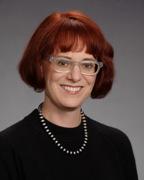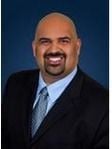Feature Article
Let’s Talk About Your Case.
Contact us for a free consultation
Please note: We only handle disability claims and do not handle retirement issues
Fields marked with an * are required
Advocating For The Disabled
Jason Lloyd was diagnosed with schizophrenia at 36. He heard voices and couldn’t hold a job.
The first time he applied for federal disability benefits, the process took a year. He had to go to Marysville to see a doctor, where he was pronounced “fine” after a 10-minute exam. Benefits were denied.
Then his father, Tom Lloyd, found a Sacramento attorney affectionately called “the red-haired lady” by homeless clients in town.
Elizabeth Gade is among a small group of about two dozen local lawyers that specializes in helping local folks get federal disability benefits. It’s puzzle work that takes special patience and understanding. The practice pays the bills, but the payoff comes in human terms.
“You can make a huge difference in people’s lives. Sometimes, it’s the difference between life and death,” Gade said. “Even people who started as middle class have lost everything. Others are homeless, living on the river.”
Disability law is a fact-based practice that takes dogged research.
“Sometimes clients don’t remember the details,” said Bruce Hagel, a partner at Olson Hagel & Fishburn LLP who has handled disability claims for more than 25 years. “There’s certainly a social worker component to this kind of work.”
Hagel was Gade’s mentor before she left the firm in April 2011 to start a business of her own. Hagel was cutting back his hours, and the firm specializes in political law in a Capitol Mall office, which serves a different kind of clientèle.
Now Gade has an office on Point West Way and a small interview office in Woodland, both accessible by public transportation. There’s a staff of several, including three who followed her from Olson Hagel.
Clients came along, too, providing steady work from the get-go.
High stakes
Success in a disability case varies by individual, but can mean health benefits and monthly pay as high as $2,300, many times the $128 paycheck and food stamps provided by county general assistance.
Social Security Disability Insurance is for disabled people who have paid into the Social Security system. Supplemental Security Income, known as SSI, is a federal welfare program for individuals who are disabled or over the age of 65. Both programs require proof that a disability renders the individual totally unable to work; SSI also requires individuals to be low income.
Roughly two-thirds of first-time applicants for these programs are rejected. The process takes two to eight months.
Then comes a request for reconsideration. That can add another two to eight months — and 80 percent of the cases that seek reconsideration get denied.
Those who do get benefits tend to win them after a court hearing, but it takes months to get on the docket in Sacramento.
Many clients have substance abuse problems. Others are mentally ill. Some have been in jail. Most are vulnerable. All are desperate.
“It’s fascinatingly complex,” Hagel said. “Tough cases need attorneys more than easy cases.”
Gade worked in mental health crisis treatment before she went to law school. Burned out after years in the trenches, she wanted to make a broader difference in people’s lives but had no intention of doing traditional law firm work.
“My folks get windows slammed in their faces. They wait in lines forever,” Gade said. “I tell them to let me and my staff worry about it for you.”
It can still take a couple of years to work through the system, though.
If a case is strong enough to be in the small percentage to be granted at initial application — and the person can handle that step — Gade suggests going ahead rather than paying her to do it. If benefits are denied, she takes it over.
“I would never encourage anyone to go to a hearing without an attorney, either me or someone else,” she said. “No point in preparing for a gunfight armed only with a knife!”
Specialized field
By law, attorneys get up to 25 percent of the past-due benefits they get for clients, up to a cap of $6,000 per case. They don’t get rich on the business, but they can make a living.
“(The payback) encourages attorneys to do it, but it’s a tragedy people need an attorney to get an entitlement,” Gade said.
About 4,000 attorneys and others in this line of work belong to the New Jersey-based National Organization of Social Security Claimants’ Representatives. That’s not the entire universe of folks in the business, but it’s probably most of them, said Ethel Zelebske, government relations director for the group.
There are some national companies — the New York-based Bender & Bender Law Firm does Social Security law in addition to other business — but most disability income lawyers are in solo or small practices because the work is so specialized and the clientèle so diverse.
Gade earned enough income to start paying herself a salary in July, her definition of “making it.” Staff and other expenses came first.
Ultimately, Gade’s reward is helping her clients. “I learn so much from the people I meet,” she said. “I see the triumph of the human spirit. Celebrities can’t get clean and sober at Betty Ford, but I’ve seen people do it in a tent on the river.”
The first thing Gade told client Tom Lloyd was to stick to the truth. “I can work with the truth. I can’t work with lies,” she told him.
Ultimately, Tom’s son Jason got health benefits and a monthly stipend of $967. It took another year to get back payments. After a year, his eligibility was re-evaluated.
“Six months ago, we had to do it all over again,” Tom Lloyd said. “Three months later, we got the OK for three years. We would have been lost without her.”
Copyright © 2012 American City Business Journals. All rights reserved.
This testimonial or endorsement does not constitute a guarantee, warranty or prediction regarding the outcome of your legal matter.



